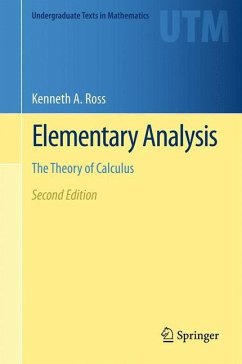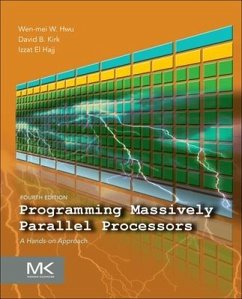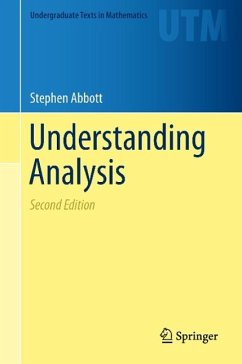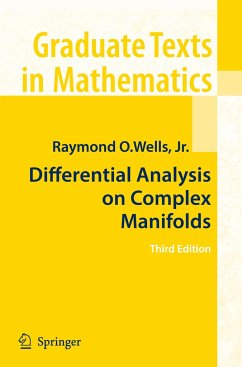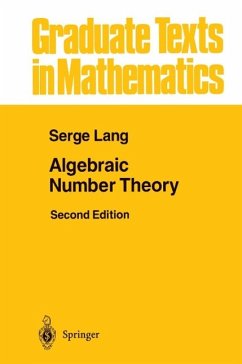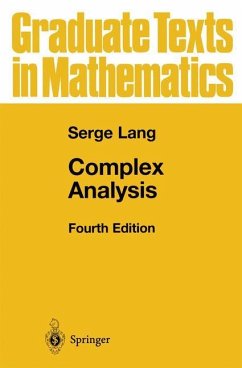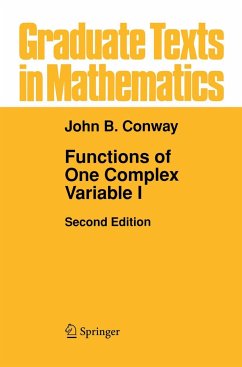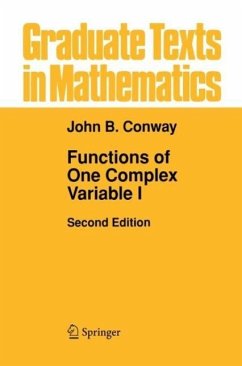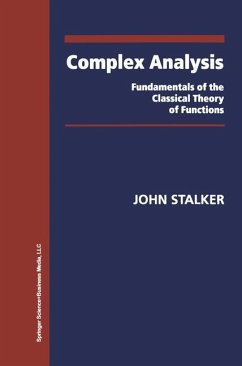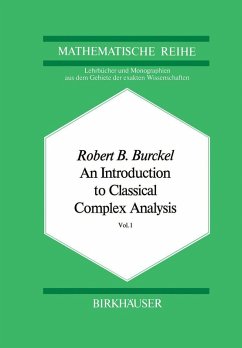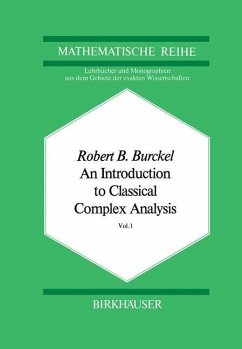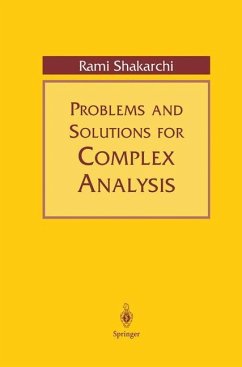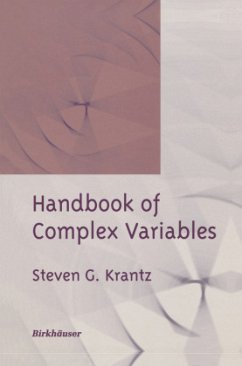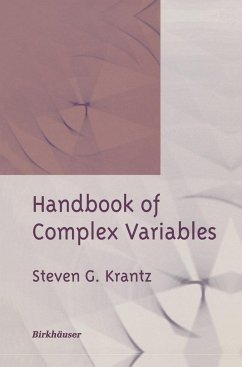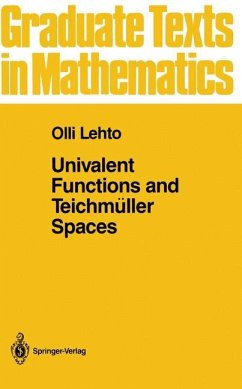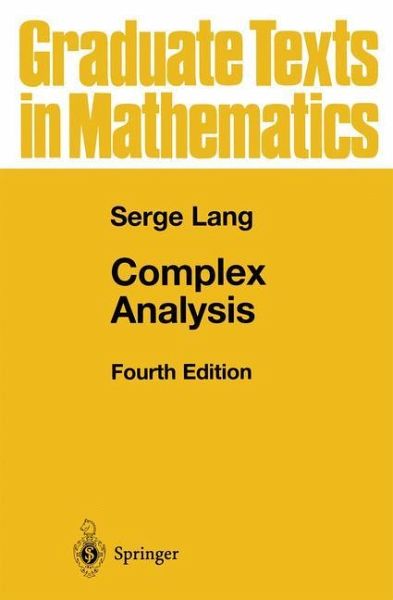
Complex Analysis
Versandkostenfrei!
Versandfertig in 1-2 Wochen
51,99 €
inkl. MwSt.
Weitere Ausgaben:

PAYBACK Punkte
26 °P sammeln!
Now in its fourth edition, the first part of this book is devoted to the basic material of complex analysis, while the second covers many special topics, such as the Riemann Mapping Theorem, the gamma function, and analytic continuation. Power series methods are used more systematically than is found in other texts, and the resulting proofs often shed more light on the results than the standard proofs. While the first part is suitable for an introductory course at undergraduate level, the additional topics covered in the second part give the instructor of a gradute course a great deal of flexibility in structuring a more advanced course.
The present book is meant as a text for a course on complex analysis at the advanced undergraduate level, or first-year graduate level. The first half, more or less, can be used for a one-semester course addressed to undergraduates. The second half can be used for a second semester, at either level. Somewhat more material has been included than can be covered at leisure in one or two terms, to give opportunities for the instructor to exercise individual taste, and to lead the course in whatever directions strikes the instructor's fancy at the time as well as extra read ing material for students on their own. A large number of routine exer cises are included for the more standard portions, and a few harder exercises of striking theoretical interest are also included, but may be omitted in courses addressed to less advanced students. In some sense, I think the classical German prewar texts were the best (Hurwitz-Courant, Knopp, Bieberbach, etc. ) and I would recommend to anyone to look through them. More recent texts have emphasized connections with real analysis, which is important, but at the cost of exhibiting succinctly and clearly what is peculiar about complex analysis: the power series expansion, the uniqueness of analytic continuation, and the calculus of residues.






